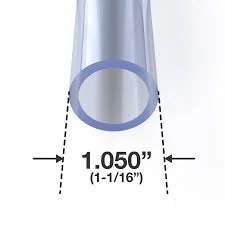Aug . 28, 2024 19:09 Back to list
black hdpe pipe
Black HDPE Pipe An Essential Component for Modern Infrastructure
High-Density Polyethylene (HDPE) pipes have emerged as one of the most versatile and durable solutions for various applications in the construction and infrastructure sectors. Among these, black HDPE pipes stand out due to their unique properties and advantages. They are widely used in water distribution, irrigation systems, industrial applications, and gas distribution, among others.
One of the significant benefits of using black HDPE pipes is their excellent resistance to corrosion. Unlike traditional pipes made from materials such as steel, which can rust over time, HDPE pipes maintain their integrity against various environmental factors. This makes them particularly suitable for regions with high acidity or salinity levels in the soil, ensuring a long-lasting solution with minimal maintenance requirements.
Black HDPE Pipe An Essential Component for Modern Infrastructure
Moreover, black HDPE pipes are lightweight compared to other materials, making transportation and handling much more manageable. The ease of installation is further enhanced by the availability of a variety of jointing methods, including butt fusion, electrofusion, and mechanical fittings, allowing for quick assembly and reducing labor costs. This is particularly beneficial for large-scale projects where efficiency is crucial.
black hdpe pipe

The black coloration of HDPE pipes is not merely aesthetic; it serves a functional purpose as well. The addition of carbon black particles provides UV resistance, preventing the degradation of the material when exposed to sunlight. This feature is particularly important for outdoor applications where the pipes are subjected to direct sunlight for extended periods.
In terms of safety, black HDPE pipes are non-toxic and do not leach harmful chemicals into the water they transport. This makes them an ideal choice for potable water systems, ensuring the safety of drinking water supplied to communities. Additionally, HDPE is known for its low thermal conductivity, which can help maintain the temperature of the water within the pipe, making it less susceptible to freezing in colder climates.
When it comes to the environmental impact, black HDPE pipes are recyclable, contributing to sustainable practices in the construction industry. The production process of HDPE pipes is also more energy-efficient compared to traditional materials, further reducing the carbon footprint associated with infrastructure projects.
In conclusion, black HDPE pipes are an essential component in modern infrastructure due to their corrosion resistance, flexibility, lightweight nature, ease of installation, UV resistance, safety, and recyclability. As cities and industries continue to grow, the demand for reliable and durable piping solutions will only increase. Black HDPE pipes will undoubtedly play a crucial role in meeting these demands, offering a combination of performance and sustainability that is hard to match. They are not just pipes; they are a testament to the advancements in materials science that continue to shape our infrastructure landscape.
-
Durable PP Rigid Sheet: Lightweight, Chemical Resistant Solutions
NewsAug.21,2025
-
PVC Grey Sheet for Extraction: Chemical Resistant & Durable
NewsAug.19,2025
-
Durable PVC Pipe Fittings for Plumbing & Irrigation Needs
NewsAug.18,2025
-
HDPE Steel Belt Reinforced Spiral Corrugated Pipe | High Strength
NewsAug.17,2025
-
HDPE Pipe Fittings: Durable, Leak-Proof Solutions
NewsAug.16,2025
-
Premium CPVC Sheet: High-Temp & Chemical Resistant Solutions
NewsAug.15,2025

